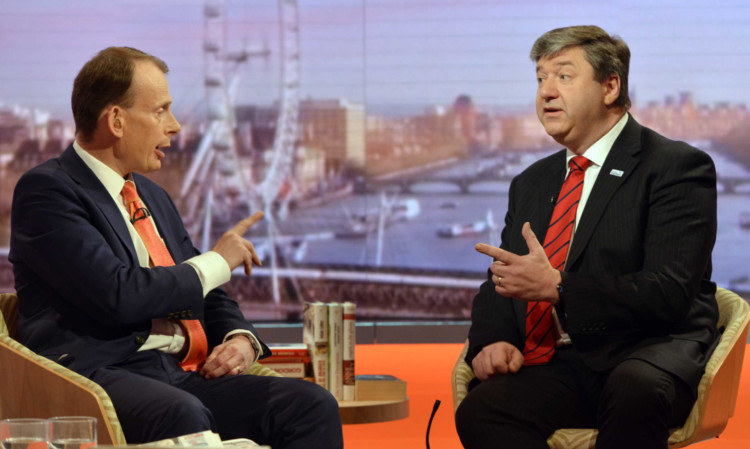The Scottish Government has said a currency union would be in the best interests of both Scotland and the UK in the event of Scottish independence, while Unionists say it would not work for either.
Deputy First Minister Nicola Sturgeon said that as Scotland represents the second biggest export market for the rest of the UK after the US, it would not be in the interests of Westminster “to force its businesses into a separate currency” when Scotland wants to retain the pound.
Scottish Secretary Alistair Carmichael said a currency union “wouldn’t work” and would give Scotland less control over interest rates even if the rest of the UK agreed to such a union.
Former chancellor and leader of the Better Together campaign Alistair Darling, meanwhile, raised the spectre of Scotland joining the euro.
The comments came 48 hours before the Scottish Government publishes its much-anticipated white paper or independence “blueprint” on Tuesday.
The 670-page document will set out plans for economic growth and security, jobs and the date Scotland could become an independent Scotland revealed as March 24 2016.
Asked on the BBC’s Andrew Marr Show whether Westminster would refuse to allow the Scots to use the pound, Mr Carmichael said: “Public international law is very clear on this, that if you remove yourself from the United Kingdom then you would remove yourself from all sorts of institutions and, yes, the pound would be one of them.”
A currency union would lead to a situation where the UK would be asked to be a guarantor for banks over which it had no control and it would see Scotland “handing over control” of their interest rates and borrowing levels to the rest of the UK, he said.
“The fact is that a currency union wouldn’t work. It wouldn’t work for Scotland, it wouldn’t work for the rest of the United Kingdom.
“If you look at what happens in the eurozone and you learn in fact that the currency union there runs into difficulty because it doesn’t have the fiscal, the economic or the political integration. Independence is about political disintegration, it’s not about integration.”
Mr Darling said too that a currency union was looking like a “non-starter” and called for nationalists to explain their “plan B”.
He told the Murnaghan programme on Sky News: “Are we going to join the euro, are we going to have our own currency or are we going to use sterling in the same way as Panama or Ecuador use the US dollar?
“We need to know the answers to these things. It is not being negative, it is simply asking the nationalists to come clean as to what their true plans are.”
He added: “They say they want a eurozone-style currency union, a legally binding straitjacket. Why on earth would Scotland, never mind the rest of the UK, want to enter into something like this? Whatever else it is, that’s not independence.”
The independence referendum will take place on September 18 next year.
The proposed Independence Day of Thursday March 24 2016 would follow the dissolution of the current Scottish Parliament.
March 24 is the anniversary of both the Union of the Crowns in 1603 and of the signing of the Acts of Union in 1707.
The 170,000-word white paper will be available from around 10am on Tuesday in hard copy and e-book form. The Scottish Government said it wants as many households in Scotland as possible to have a copy.
Ms Sturgeon said: “This guide to an independent Scotland will be the most comprehensive and detailed blueprint of its kind ever published, not just for Scotland but for any prospective independent country.”
Asked about plans for a currency union on the BBC’s Sunday Politics Scotland, Ms Sturgeon said: “My point is that we will be in a currency union because it’s in the best interests of Scotland and the best interests of the UK.”
She said Scottish ministers do not favour going into the euro and stressed that an independent Scotland could not be forced to join that currency.
